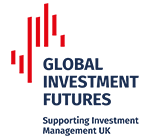
Chris Cummings opens IA Sustainability and Responsible Investment Conference 2022
And yet, against this dim geo-political and economic backdrop, investor commitment to sustainable and responsible investing has remained noteworthy, with Responsible Investment funds still seeing inflows compared to the outflows we’ve seen overall in the first three months of the year.
Just to put this in a context
- In 2020 and 2021, retail investor support for funds which have a specific social or environmental purpose grew significantly, with savers consistently putting around £1bn a month into these funds every month.
- This year, even in response to the tightening of monetary policy in major markets and Russia's invasion of Ukraine which triggered outflows from retail funds overall, responsible investment funds have still experienced monthly inflows.
The IA’s most recent data saw responsible investment fund inflows accelerate from £670 million in February to £935 million in March.
NET ZERO
Earlier this month, I had the pleasure to attend the Net Zero Delivery Summit at Mansion House. An event organised with the Cop26 presidency and GFANZ to mark six months from Cop26. It was a timely reminder of the scale of the threat the planet faces, the urgency of the issue and – importantly – the commitments that our industry has made.
Over the last year and a half, the investment management industry has really nailed its colours to the mast on climate change. UK-based investment managers with more than £7trn assets under management have made the Net Zero Asset Managers commitment. That’s more than three quarters of total UK AUM.
Others have made similar Race to Zero commitments, including the Net zero asset owners' alliance, and the finance industry-led efforts underway through GFANZ.
Whether they have made formal commitments or not, the whole financial sector is responding to client demand to support the transition to net zero. We will spend some time today thinking about how we serve that demand.
It is essential that we do so to the highest standard. We need to properly understand the climate-related risks that effect our investments, how best to measure and report the climate impact of investments, and how to seek out investment opportunities which support the net zero transition. Importantly we also need to ensure we communicate in the best way with investors so they have a clear and accurate view of how their investments are working to address climate risks.
At COP26, the Chancellor made it clear that he wants the UK to be the world's first Net Zero Aligned Financial Centre and we will hear today about some of the steps the Government is taking to achieve that and to embed net zero into financial services policy and regulation.
There has been however a suggestion that the energy supply issues which follow from the war in Ukraine and sanctions on Russia may cause a need to reassess this commitment.
It is our view here at the IA that Europe’s drive to wean itself off Russian gas should only reinforce the net-zero transition. Yes, some regions may produce more fossil fuels in the near-term as global energy systems are rewired. But the urgent and compelling case for clean energy and Net Zero is made - and must be rigorously pursued.
This is vital stuff and as an industry we must shoulder our share of responsibility, but this is not something that business can do alone. So I am looking forward to hear your views and the clear views of policy makers on this matter.
And here I turn to the unique ability of our industry to work as a partner to government. The investment management industry today manages some £9.4trn on behalf of clients in the UK, across Europe and around the world. Those are the savings and pensions of millions of people who trust our industry to help them have a healthy standard of living in retirement - but who would also want us to make sure they have a healthy planet and society to retire into. Our responsibilities to our clients are foremost in our minds. But in meeting their needs we need projects to invest in: green-infrastructure, renewable projects, sustainable enterprises - businesses that we can invest in long-term. The backbone of this approach is policy certainty. A clear, long-term commitment to modernise and replenish.
Now 15 years after the Turner Review which led to auto-enrolment being established - a truly successful policy that has brought millions of UK citizens into the security of savings for their retirement - it is timely to strike a new cross-party consensus on greening the economy. This radical, but not unique, approach would demonstrate to investors around the world that the UK is the best place in the world for investment and one which will meet its net zero emissions.
We know that Net Zero is a politically sensitive area; and that there are those who question the costs of net zero. However, relative silence from policymakers – and particularly from those in leadership – simply leads to a lack of clarity and no clear signal to markets that the UK is a place where you can invest to support the transition.
It also risks a communication breakdown between government and industry on one side, and consumers – or voters – on the other. We face a cost-of-living crisis which will fix fierce attention on energy bills.
We know that the public supports net zero today, but the public mood can change especially as households tackle truly challenging times, and we must ensure that we emerge from this crisis having shown how the pursuit of net zero can help, and not hinder, household finances.
As Ministers told us at the Net Zero Delivery Summit: we must deliver “Co-ordination, Coherence and Clarity” on what we want to achieve and how we intend to get there.
SUSTAINABILITY IS NOT JUST ABOUT CLIMATE ACTION
Today is not only about climate change, and this is not only a net zero conference. Indeed, while it might be right to consider climate change to be the defining issue of our time, it is impossible to overlook the war taking place on Europe’s eastern edge.
This war is, first and foremost, a human tragedy. For Europeans, it has called into question many of the things that we have taken for granted. This is an issue where world events and investment decisions are indivisible.
We will discuss that today. Considering not only how a renewed focus on energy security might affect the transition to net zero, but also how the war has changed attitudes and whether this has changed what people want from responsible investment.
Because we should remember that client demand for sustainability and responsible investment – for ESG – is not solely driven by climate change. Indeed, there is much more to sustainability considerations than just the pursuit of net zero.
And inevitably, that will mean governments working together.
We wholeheartedly support the work being done by the ISSB and we urge policymakers to strive for international regulatory coherence of standards. In a world where geopolitical risk threatens the globalised supply chain model that has brought so many benefits, we urge regulators not to add further costs and grit-in-the-system by having different and diverging national standards. Only by having standards that meet-and-marry can we ensure what is “green” in one country is also “green” in another. This will provide the essential foundation for consumers to have trust in the system.
LISTENING TO OUR CUSTOMERS
Very shortly we will hear from Sacha Sadan, Director of Environment Social and Governance at the FCA and no doubt, one of the leading voices on the developing UK sustainable finance rules, including SDR (Sustainability Disclosure Requirements) and classification and labels for investment funds.
We know that there has never been a greater focus on how well investment management firms deliver for their clients and for the wider economy. Today’s savers want to see and understand the impact of their investments on the world around them and to have the confidence that when they invest in a responsible and sustainable investment product, that product is clear and matches their preferences and expectations.
That is why the Investment Association and our members fully support the commitment to build trust in the market for sustainable investments and to ensure there is clarity and consistency to the way our industry describes sustainable and responsible investment products to clients.
The growth in ESG investing and its popularity is evident amongst people of all age ranges - this isn’t a GenZ issue. To help them benefit from their desire to do good as well as prosper we need to evolve our product-set and think, act and invest long term. And that is why vehicles such as the Long Term Asset Fund are essential - and must be opened up to retail investors quickly.
We see other jurisdictions racing ahead of the UK in allowing their citizens to benefit from these exciting new products but the UK continues in the slow lane, and that will, inevitably mean lower levels of return and less in the pension payments of people across the country. It is time to be ambitious, open up LTAF for retail investors, and modernise the ISA regime to facilitate long term investment. This will fuel the economic growth our nation so sorely needs now.
It is important to say we also support the FCA in all its efforts to ensure good customer outcomes and a well-functioning fund market and have welcomed the publication of both the FCA’s Dear AFM Chair Letter on improving quality and clarity of authorised ESG & Sustainable Investment Funds, as well as the FCA’s Discussion Paper on Sustainability Disclosure Requirements and investment labels.
I am really looking forward to hear Sacha’s remarks and I am sure our whole audience will be paying close attention to any next steps outlined as we move together towards a better way of communicating with our clients on the sustainability characteristics of investment products.
And that leads me to my final but most critical point – our clients.
Listening to our customers has been the north star to guide all of our advocacy in sustainability and responsible investment this year.
Later today, you will hear about a customer and adviser research project the IA conducted with the Wisdom Council to help inform our industry positions and constructively support policymakers and regulators in their endeavours to shape the sustainable finance rules in the UK.
This research does not provide the solution and we must continue to test and challenge how we communicate in this complex area, but its insights are critical to framing the way ahead.
Once again, thank you all for joining us here today. Thank you to Mark Versey and Aviva Investors for hosting us. Thank you to our principal partner – Linklaters and to our other partners – HSBC and Six Group. Without your support this event would not have been possible.
There is a lot to discuss and a brilliant line-up of speakers with a wide range of practical experience. I know you will find the day valuable.






